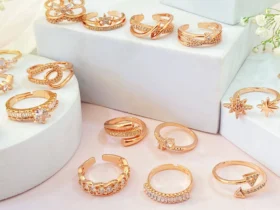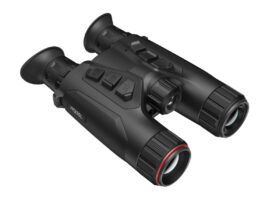Noise-cancelling headphones, particularly wireless and over-ear types, have grown popular among commuters, travellers, and audiophiles. Brands frequently claim immersive sound experiences and the capacity to filter out all background noise with superior Active Noise Cancellation (ANC) technology. But is noise cancellation as effective as claimed? Let’s look into the tale behind this popular feature.
1. How Effective Is Noise Cancellation in Reality?
ANC headphones, especially over-ear models, are designed to block out ambient sounds using microphones that pick up external noise and then generate sound waves to cancel it out. While many users rave about this feature, it’s critical to know that noise cancellation has limits. Noise-cancelling headphones work best for consistent, low-frequency sounds like the hum of an aeroplane engine or air conditioning. However, higher-pitched, unpredictable noises such as conversations or sudden loud sounds may still come through. So, while noise cancelling technology is effective, it may not silence your environment, especially in louder, more dynamic settings.
2. Comfort and Fit Matter More Than You Think
Over-ear headphones tend to provide a better noise-cancelling experience because they create a physical seal around the ear, which enhances the ANC performance. However, this effectiveness depends greatly on the comfort and fit of the headphones. Ill-fitting headphones won’t block out sound as efficiently, leading to a less satisfying experience. Many wireless ANC headphones come with adjustable headbands and cushioned ear cups to improve fit, but finding the appropriate model for your head shape is crucial. Without a proper fit, even the most advanced noise-cancelling headphones might feel uncomfortable during extended use.
3. Battery Life and Noise Cancelling – A Delicate Balance
ANC headphones typically consume more power than regular wireless headphones due to the continuous sound processing required to cancel out noise. While most modern wireless headphones come with impressive battery life, enabling the noise-cancelling function can shorten it significantly. Some noise-cancelling headphones offer up to 20 hours of use with ANC turned on, but this varies between models and usage. It’s important to check whether the advertised battery life meets your needs, especially if you plan to use the headphones for long trips or daily commutes.
4. Sound Quality: Is It Impacted by ANC?
A common question among users is whether ANC headphones compromise sound quality. In general, high-quality wireless headphones with ANC technology are designed to provide excellent audio performance. However, in some models, activating noise cancellation may slightly alter the sound profile, particularly at lower volumes. For example, some users report a slight loss of richness or depth in the music when ANC is switched on. This doesn’t mean that all ANC headphones suffer from poor audio quality—many deliver exceptional sound—but it’s worth testing whether your preferred model delivers the balance of sound clarity and noise cancellation that you’re after.
5. Wireless Freedom – Is It as Reliable as Advertised?
The appeal of wireless headphones is undeniable—no more tangled cords or restrictions on movement. However, connectivity can sometimes be an issue, especially in busy environments or when using older Bluetooth versions. ANC headphones, particularly wireless models, are prone to occasional signal drops or latency when watching videos or gaming. High-end models typically feature more reliable connections, but it’s still essential to question the stability of the wireless performance, especially in crowded public spaces where Bluetooth signals can interfere with one another.
6. Pricing vs. Value: Are They Worth the Cost?
Noise-cancelling headphones, particularly over-ear wireless models, can be expensive. While many buyers are satisfied with the investment, it’s crucial to assess whether the higher price tag translates to noticeable benefits in your daily life. If you frequently travel, work in noisy environments, or value high-quality audio, ANC headphones are likely worth the price. However, if you only need basic headphones for casual use, it might be better to opt for more affordable wireless headphones without ANC, as these models still provide great audio without the premium price point.
Conclusion
Noise-cancelling headphones offer an impressive blend of technology and convenience, but the reality may not always meet the lofty promises. Sound quality, fit, battery life, and wireless connectivity all play a part in determining whether ANC headphones are worth the investment. For more information about noise-cancelling headphone solutions, contact One Futureworld today.











